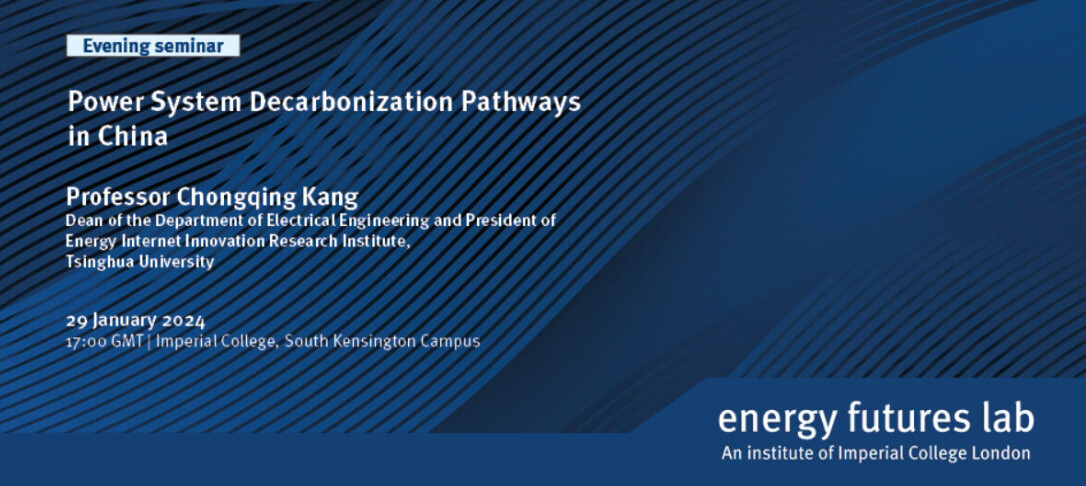
Power System Decarbonization Pathways in China
High proportion of renewable energy integration will ever change the shape of future power systems and redefine the power system stability, control, operation and planning. This talk will first introduce the major challenges and key technological solutions in the power system transition towards carbon neutrality. Then, based on the GOPT Source-Grid-Load-Storage Cooperative Planning platform, this talk will outline the optimal decarbonization pathways from the present to 2060 in China, including the source-side structure adjustment, the grid-side regional interconnection, the demand-side response, and the storage-side configuration. This talk will also present the emerging idea of a zero-carbon desert energy base, including energy storage and concentrated solar power systems for local flexible balancing, in response to the national strategy for large-scale development and utilization of renewable energy resources in desert regions.
Biography:
Prof Chongqing Kang is the Dean of the Department of Electrical Engineering of Tsinghua University, and the President of Energy Internet Innovation Research Institute of Tsinghua University.
His research interests mainly include power system planning, power system dispatch and operation, renewable energy integration, low-carbon power technology, load forecasting, and power market. He has published more than 400 papers, including more than 120 papers published in IEEE Transaction journals. The total citation of his work is over 32000 and h-index is 90. He has been continuously recognized as the Chinese Most Cited Researchers since 2017 by Elsevier.
He is/was Fellow of IET/IEEE/CSEE, a Life Fellow of Clare Hall at the University of Cambridge, a Visiting Professor at Imperial College London and an Adjunct Professor at Yonsei University in South Korea. Prof. Kang and Prof. Strbac co-founded the Tsinghua University-Imperial College Joint Research Centre for Smart Power and Energy Systems in 2019. Prof Kang serves as a Strategic Advisory Group Member of Cigre SC C1, Convenor of Working Group of Cigre SC C1.39, Chairman of the State Special Committee of China of Cigre SC C1, Long-Range Planning Committee Member of IEEE PES, and Fellows Nomination Resource Committee Member of IEEE PES.
He won 2018 Award for Outstanding Contribution to China Electric Power Science and Technology, 2021 IEEE PES Roy Billinton Power System Reliability Award, and IET Achievement Medal in 2021.
About Energy Futures Lab
Energy Futures Lab is one of seven Global Institutes at Imperial College London. The institute was established to address global energy challenges by identifying and leading new opportunities to serve industry, government and society at large through high quality research, evidence and advocacy for positive change. The institute aims to promote energy innovation and advance systemic solutions for a sustainable energy future by bringing together the science, engineering and policy expertise at Imperial and fostering collaboration with a wide variety of external partners.